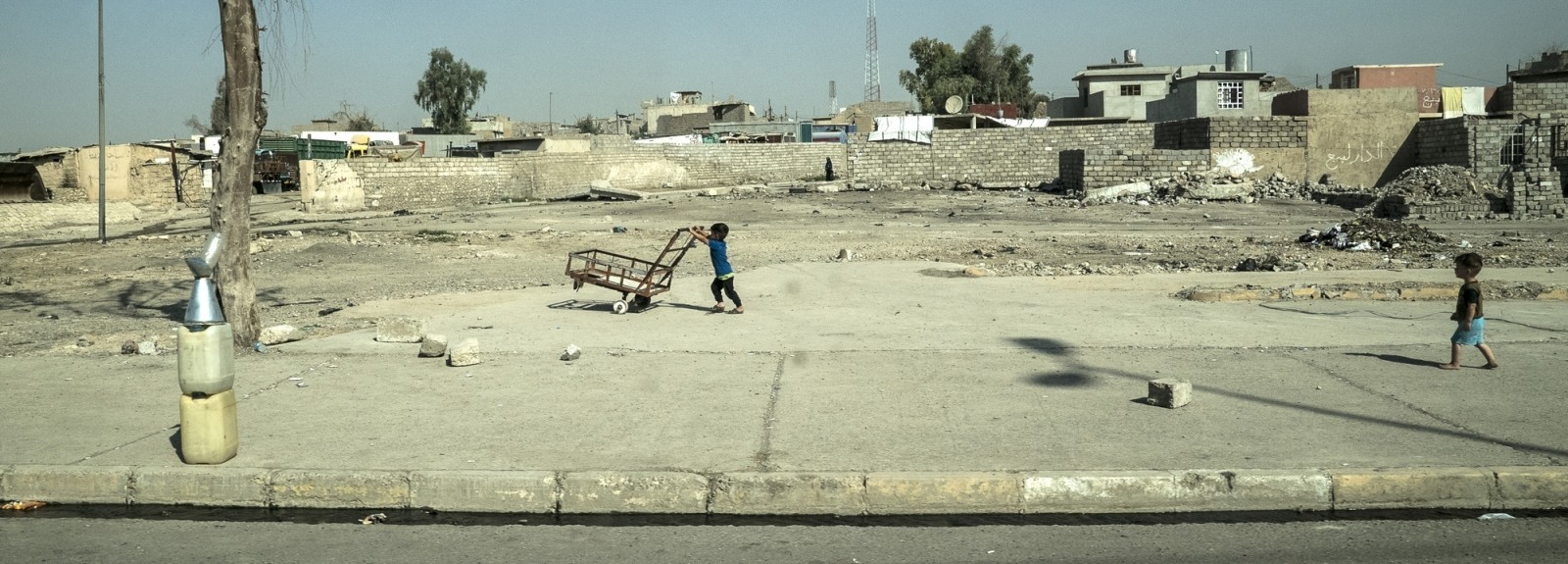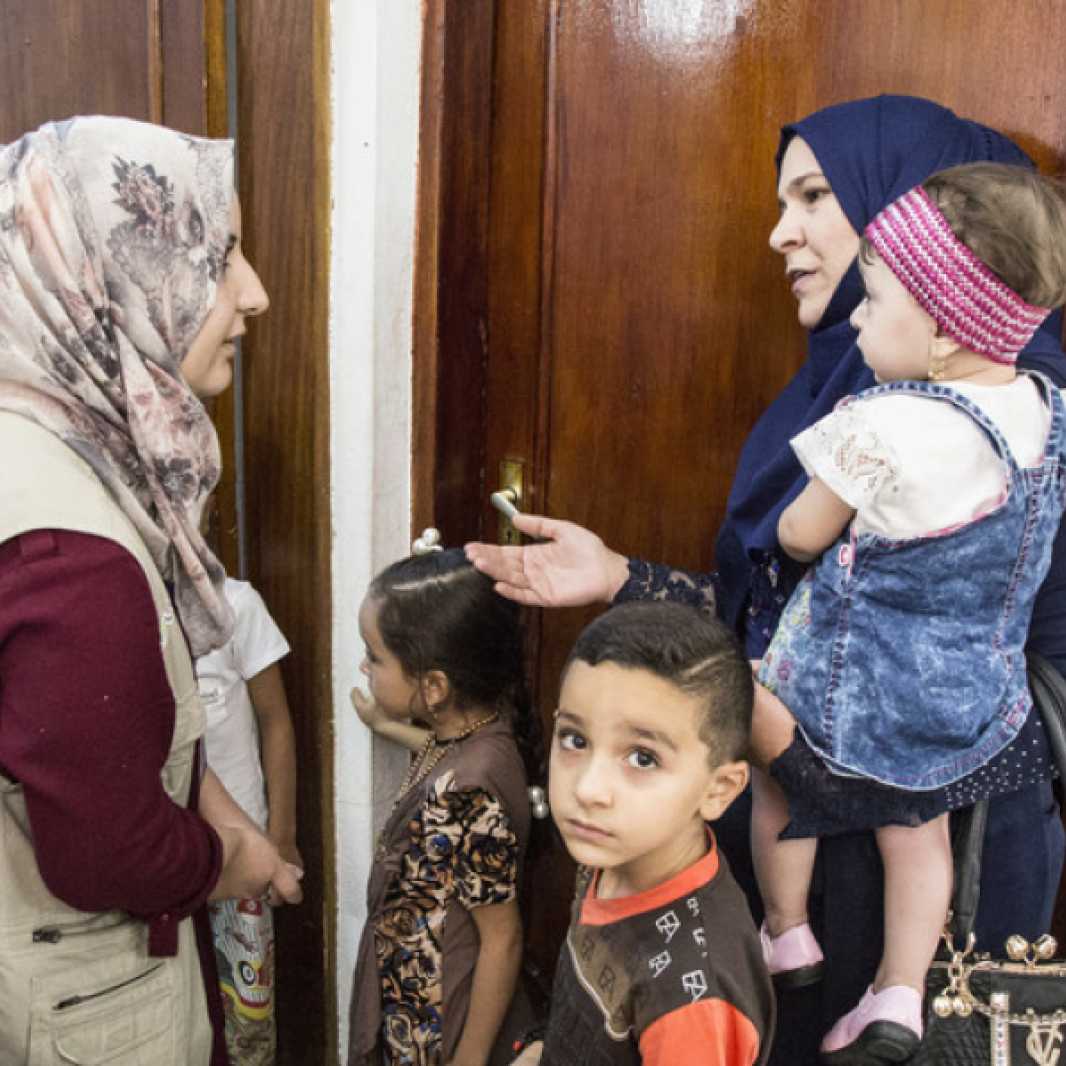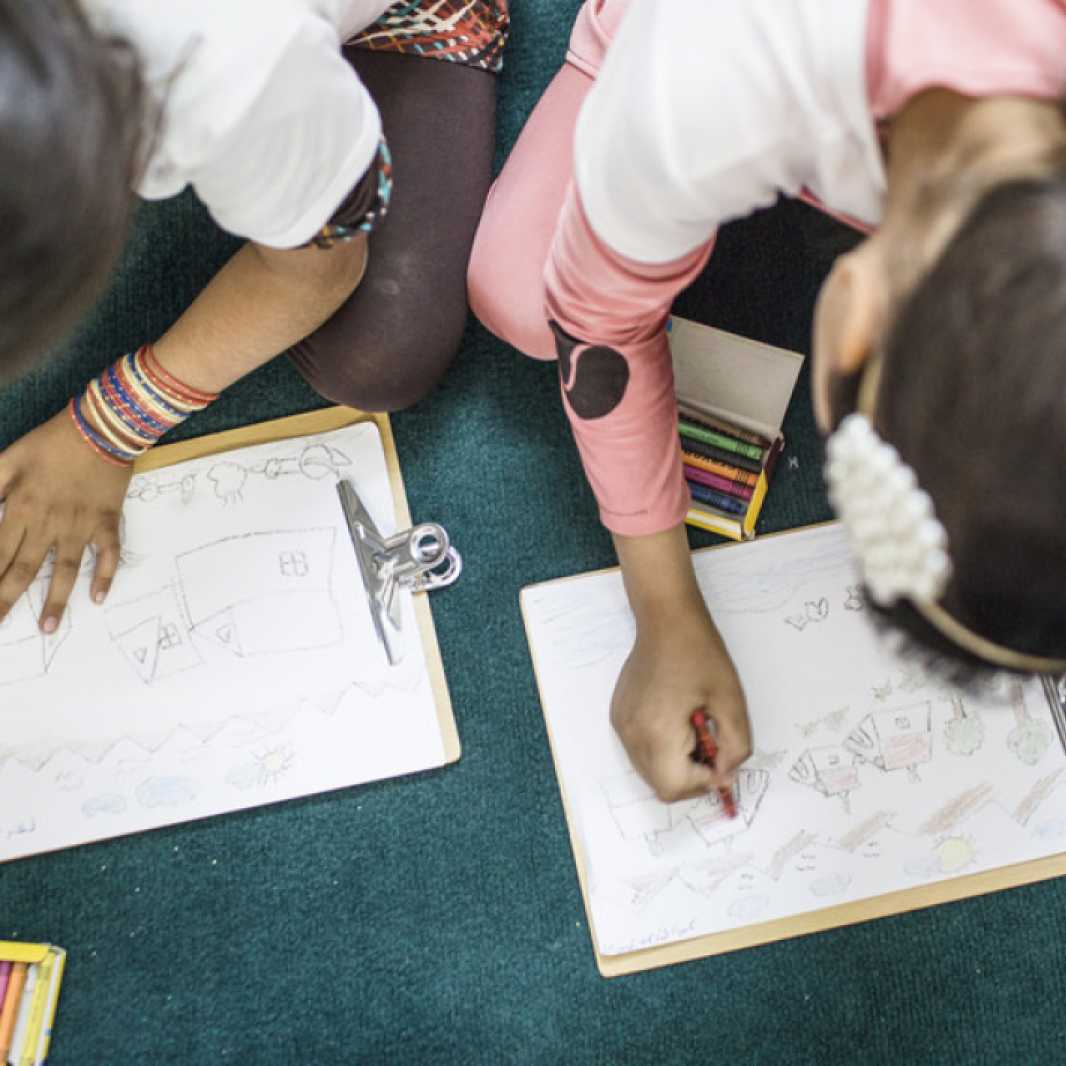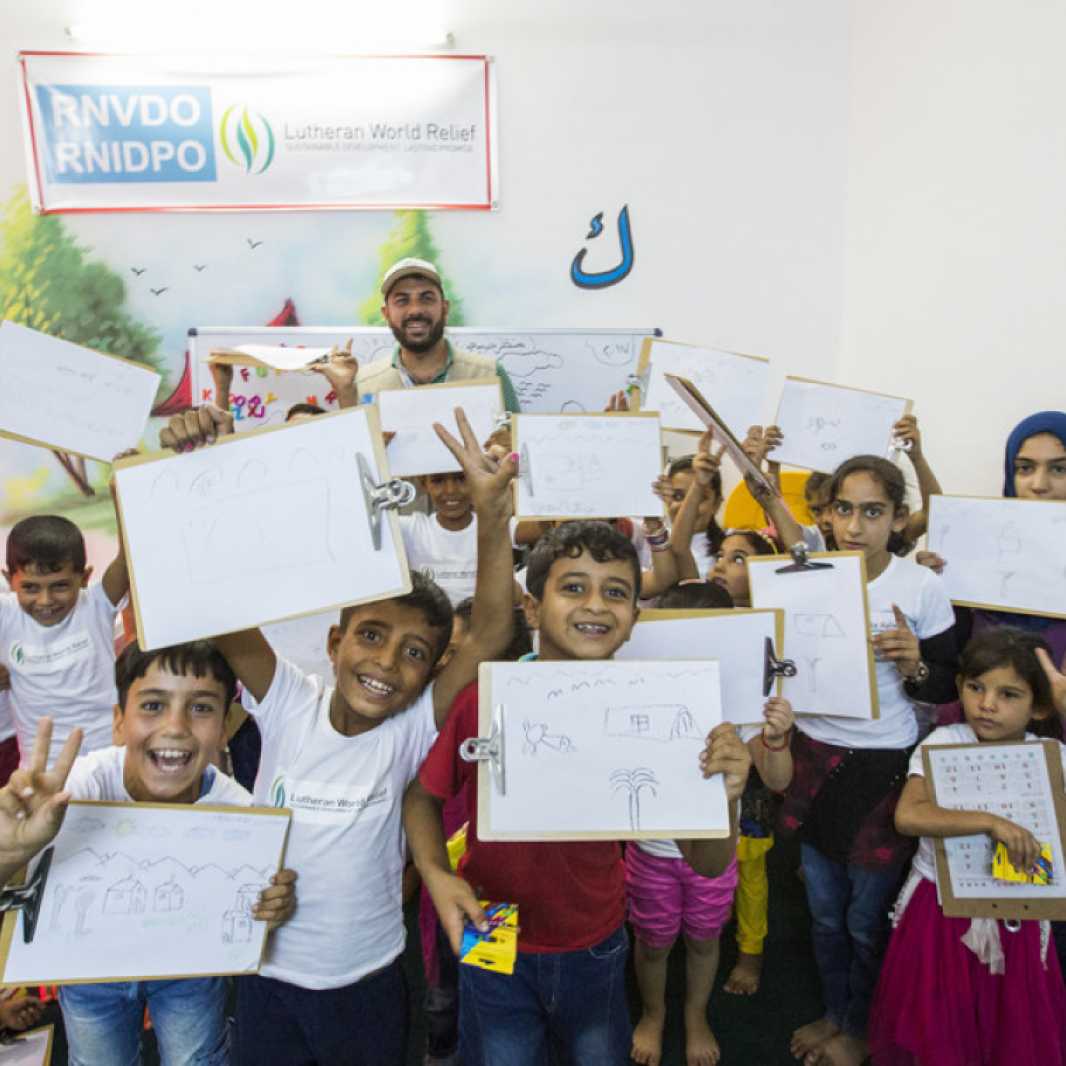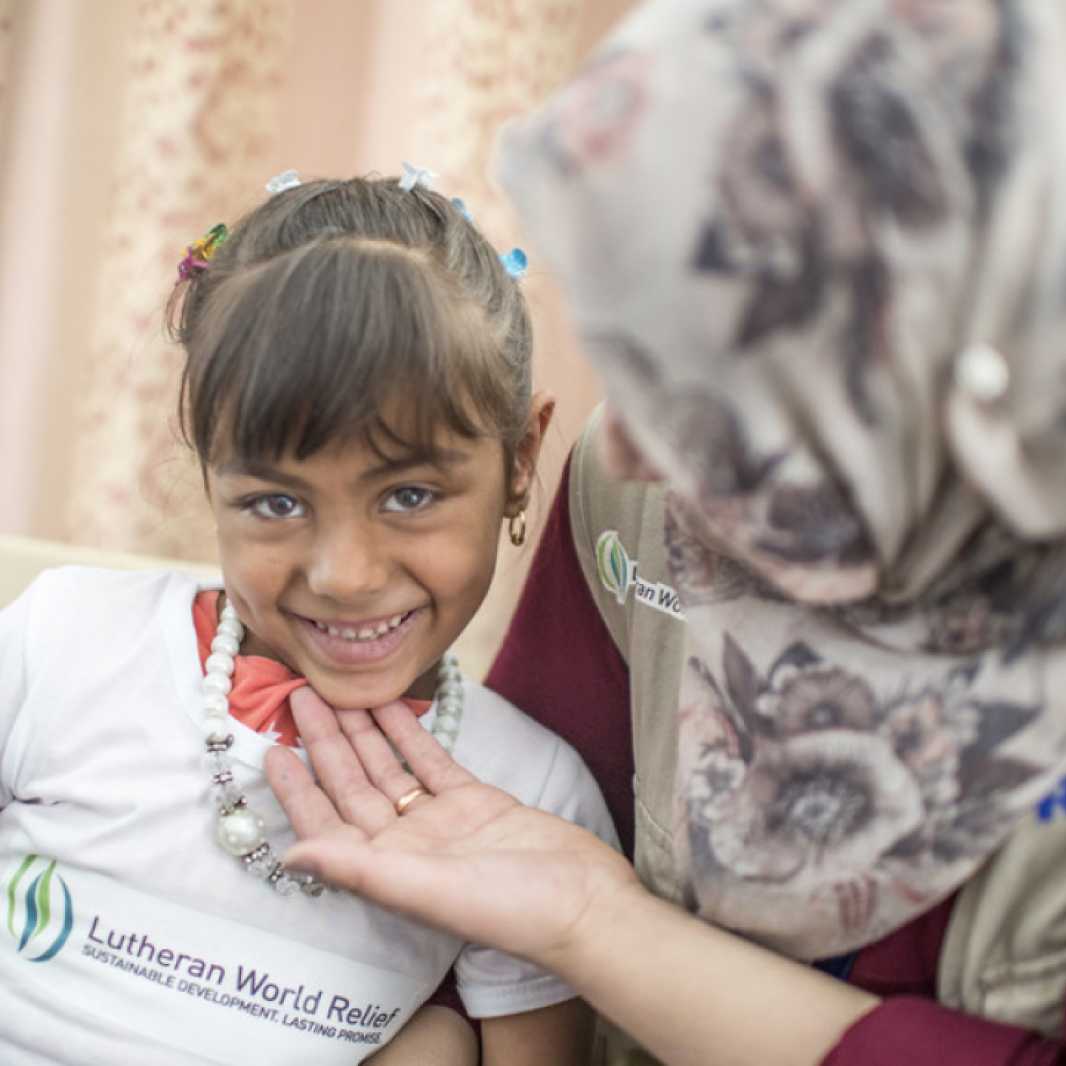Tensions are rising in Iraq. Now, more than ever, we need your compassion as we walk with children and families whose lives have been devastated by conflict. With your support, families are healing. We can’t let current events slow this work down. We must stay the course.
Your gift today keeps us working in the Middle East. Take a moment to meet just a few people whose lives have already been changed by your generosity. Then please make a gift in support of this work. With your help, we will walk with families in the Middle East until they are able to walk on their own.
God saved Mosul, after Islamic State all but destroyed it.
Mosul was once known as Nineveh – the one Jonah was sent to save almost three thousand years ago. Now, to the naked eye, the city lay in heaps of rubble, crushed by three years of assault by Islamic State.
But among the ruins of West Mosul – the site of some of the most bitter urban warfare since World War II – there are seeds of hope. Together with Lutheran World Relief, you are scaling up community centers, certificate programs and activities to heal gaping emotional wounds of hundreds of thousands of returning refugees and those trapped in Mosul’s cruel, 3-year-long siege.
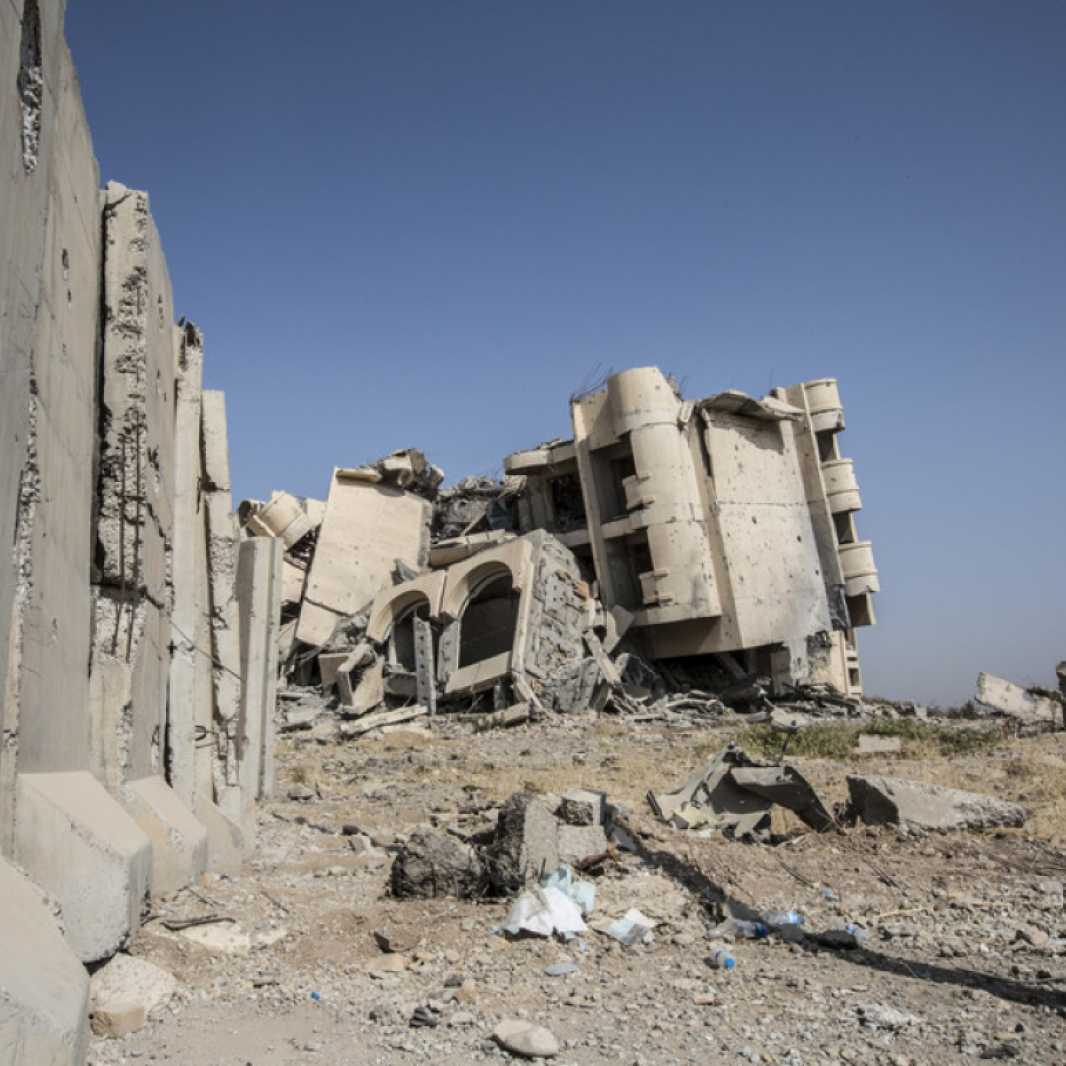
A former hospital that stood on the banks of the Tigris River in West Mosul.
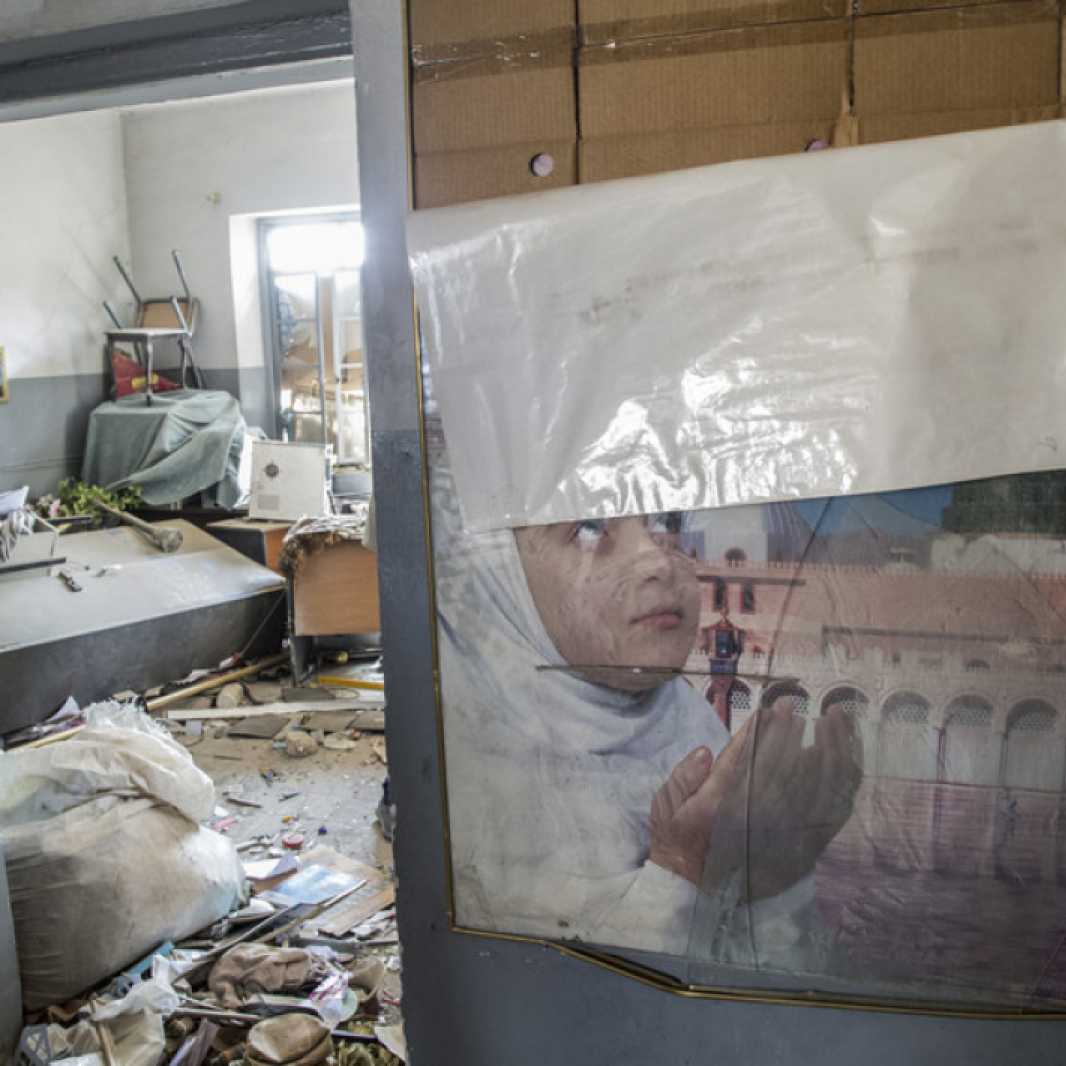
Ruins of a girls' school in West Mosul. Girls were not permitted to attend school during ISIS occupation.
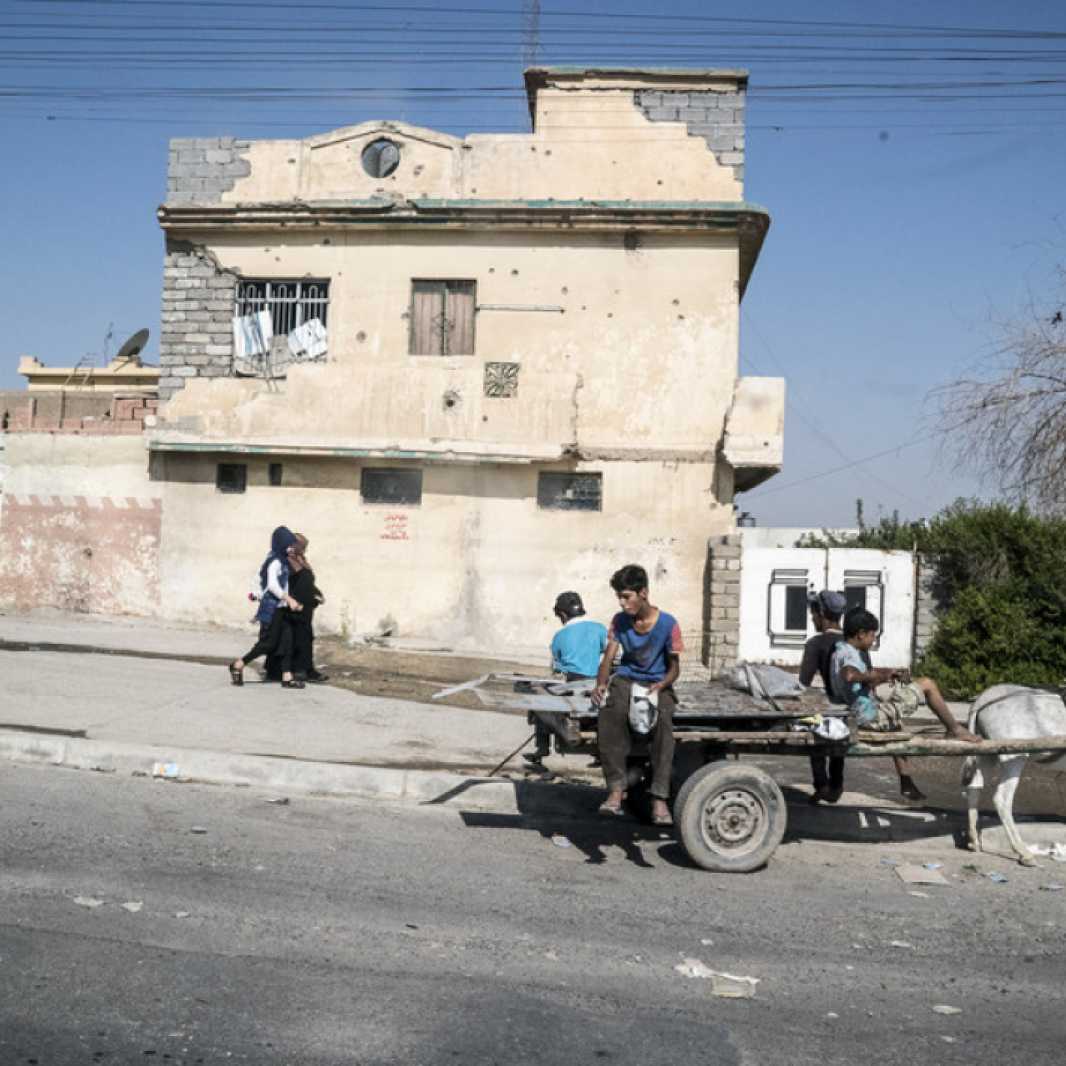
Ruins of West Mosul, Iraq, devastated by the bombing during the military campaign to end the three-year occupation of the city by the Islamic State.
Picking up the pieces
Days after Mosul’s liberation from the Islamic State group (IS) in July 2017, Lutheran World Relief began serving thousands of people scarred, scared and longing for lives free of risk and repression.
Already children, who had never held a crayon and who first drew bombs, Kalashnikov rifles and images of dead family members, are doodling houses, mountains, birds and beaming suns. Mothers who lost children, husbands and homes are thinking again of the future and well-being of themselves, their remaining families and their neighborhood. Young men and women, once certain their dreams would succumb to their own deaths, are throwing themselves into studies stoking the fires of dormant ambitions.
I Am Safe
Lutheran World Relief is carrying out psychosocial counseling and recovery support in this area, where as many as 4,000 civilians perished, 900,000 fled, 30,000 IS militants were killed and more than 90 percent of houses and buildings are dust and debris.
“So many survivors and refugees were physically hurt,” says Basil Yousif, an aid worker with Lutheran World Relief's local Iraqi partner. “All of them were emotionally harmed.”
The atrocities the population of Mosul has witnessed, and been subjected to, have taken a toll on the people here. In order for West Mosul to move forward, it first must learn to grapple with where it's been.
To help, Lutheran World Relief is supporting two community centers in the heart of West Mosul's ruins that go by the name "I Am Safe," translated from Arabic.
And, indeed, within the walls of these centers, staff and volunteers work hard to ensure the people it serves feel safe to heal.
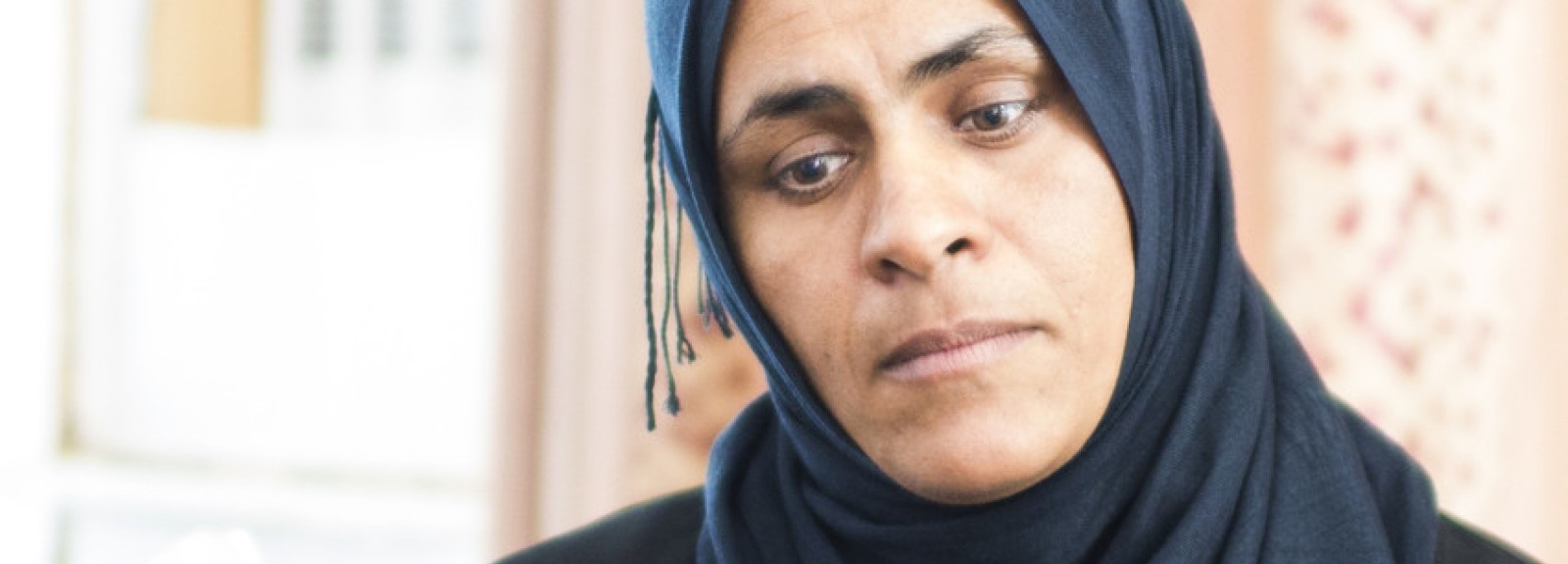
Sanaa Hasein Hamed, 38.
Broken People
“Psychosocial recovery services” is international aid-speak for emotional healing. For rebuilding human spirits all but asphyxiated by the Islamic State group’s smothering repression, which included as much psychological warfare as physical violence.
Mosul survivors' horror stories include watching IS fighters throw children and others off the top of buildings, aiding women whose crumpled hands had been crushed by steel traps, and being forced to live in cramped quarters with dozens of others, including spies, while extremists occupied and plundered their homes.
“They broke people,” said Dr. Orfan Muhammad, once a University of Mosul engineering professor and now leader of the local nonprofit Lutheran World Relief works with in Mosul. “If the wife did something they did not like, they went after the husband. If the child did something, they went after the mother. They tore families apart.”
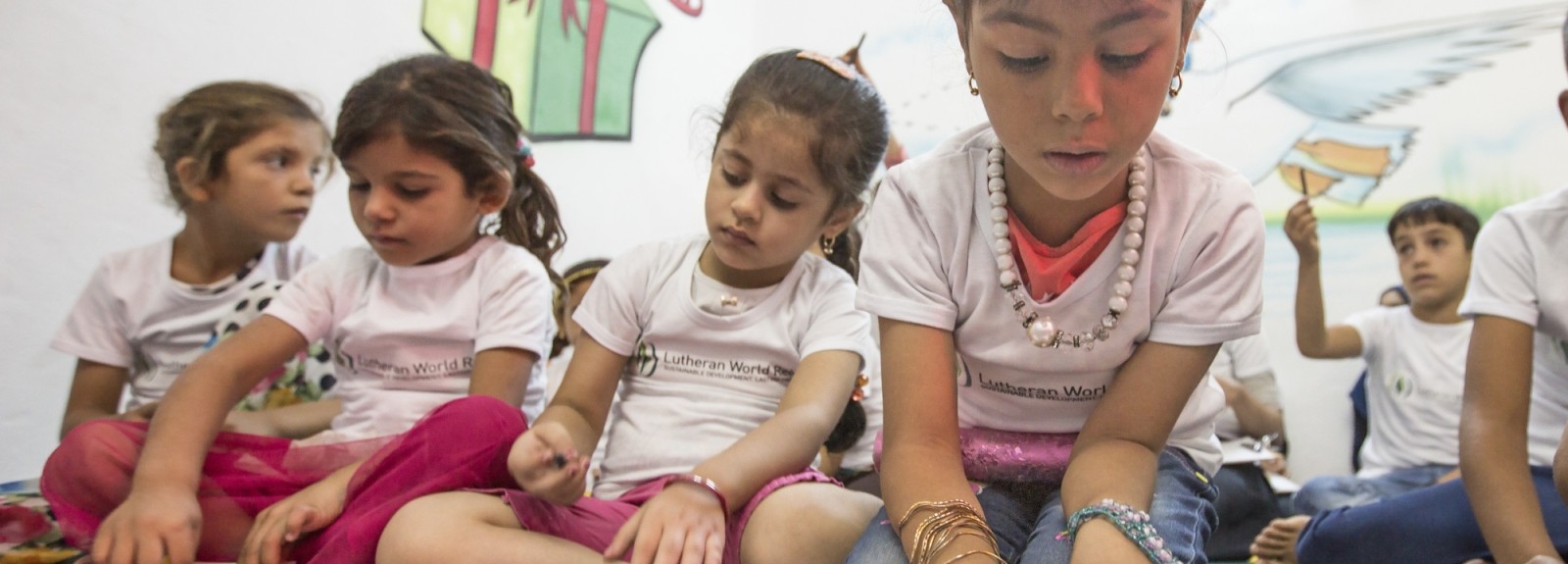
Zahraa's story
When 8-year-old Zahraa (above) arrived at the "I Am Safe" community center, case managers gently coaxed her to express herself through crayon-drawn pictures.
Zahraa's first image? Her deceased older sister, killed in front of her when an IS mortar shell ripped through the roof of their home. Next came sheets of paper with crying faces on them.
Caseworkers weren't surprised.
"They draw what they've seen," says Hani Hussein Abdullah, manager of the "I Am Safe" facility. "What they've seen is bombs, guns and fighting. People they know, dying."
In the colorful community center, with other kids their age and supportive caseworkers leading them in fun but therapeutic activities, the children – safe and secure and unmindful of conflict – begin to blossom.
Just a few weeks after her first visit to "I Am Safe," Zahraa was doodling landscape portraits adorned with birds soaring over colorful flowers, mountain backdrops and shining suns, and traditional A-frame houses with windows and doors.
Sanaa Hasein Hamed, Zahraa's mother, brings Zahraa and her 10-year-old brother Amar to the center three times a week and continues to see signs of Zahraa returning to a normal childhood.
"Last week, she asked me for girlie things like the clips in her hair," she says.
But, Sanaa says, Zahraa's trauma from surviving three years of violence remains evident every day. At night, Zahraa continues to refuse to go to sleep without wearing the necklace her older sister wore when her life ended. And Zahraa remains hard of hearing from the percussion of explosions and, consequently, is experiencing difficulty speaking.
Nevertheless, said the mother, "Zahraa is getting better. And I am proud."
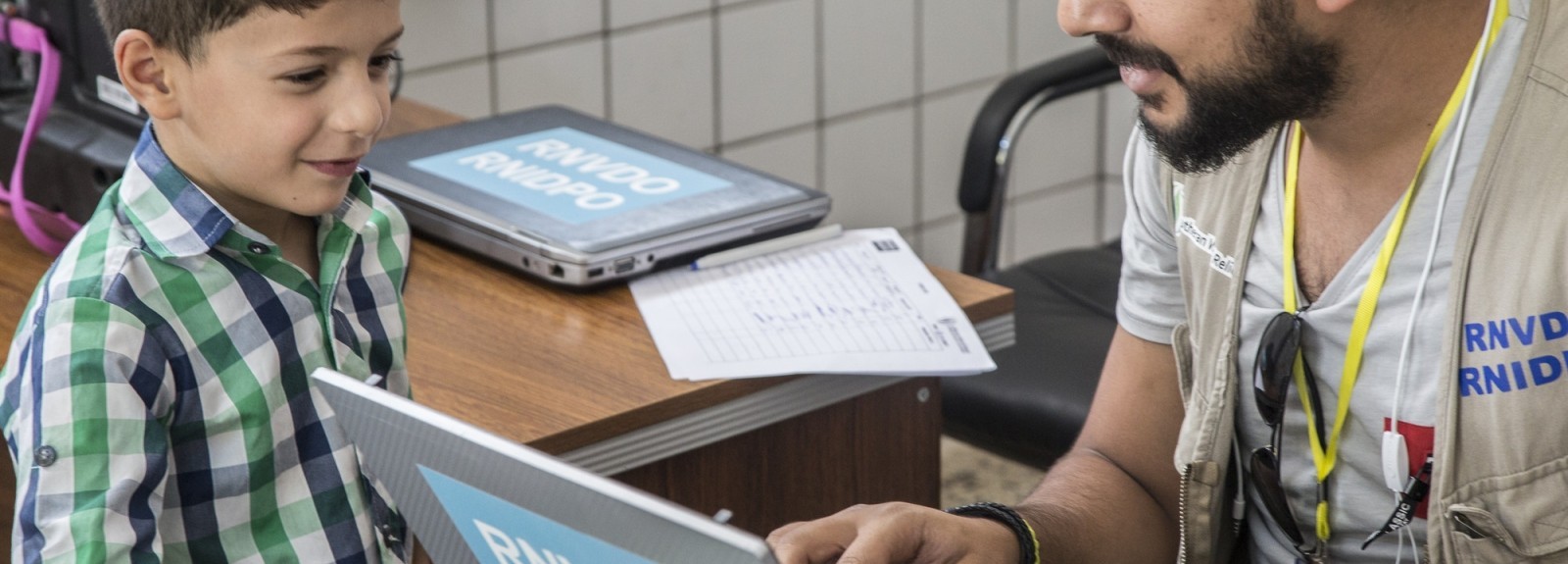
An RNVDO staff member registers a child at the Ana Fi Aman community center in West Mosul.
God saved Mosul
A shrine for Christians, Jews and Muslims alike, the purported tomb of Jonah perched for centuries on a hill overlooking Mosul.
The story of Jonah, best known for being swallowed by a whale, is told in both the Bible and the Koran.
What is not as well known is that Jonah was swallowed by the whale after shrugging off God’s instructions to warn Nineveh – present-day Mosul – of annihilation if the people did not turn from their ways and repent. When the whale spewed up Jonah on the beach after three days, Jonah did as he was told.
Nineveh was spared.
The story of Jonah dates from 750 B.C., serving as a perpetual testament to God’s mercy and forgiveness, as well as foreshadowing Jesus’ three days in the tomb before his resurrection, a sign Jesus himself noted to his disciples.
Today, we have an opportunity – to be messenger's of God's mercy, helping the people of Mosul heal and rebuild. Please put your faith into action and join us on this mission.


